This mute, blond-wigged naif Marx Brother evolved from a girl-chasing faun to a sweet innocent. The most fey and absurdist of the brothers, Harpo's art was closer to 19th century French mime than to American vaudeville. He worked as a bellboy while learning the harp which became his trademark. He and older brother Chico formed a comedy duo around the turn of the century, and by the early 1910s he was in vaudeville with Chico, Groucho and Gummo in acts like "Fun in Hi Skool" (1911) and "Welcome Home" (1914), both penned by their uncle Al Shean.
The brothers first gained national attention in the revue "I'll Say She Is" (1923-1925). Their long-running hit "The Cocoanuts" (1925-28), with script by George S. Kaufman and music by Irving Berlin, assured the brothers' stardom (by this time, Gummo had left the act and been replaced by Zeppo). On the strength of their next Broadway hit, "Animal Crackers" (1928-1929), the team was signed to a five-picture contract by Paramount. Although the limitations of early sound technology forced the Marxes to subdue their energetic comedy style and penchant for improvisation, the movie public flocked to "The Cocoanuts" (1929) and "Animal Crackers" (1930).
The final three Marx Brothers releases from Paramount, "Monkey Business" (1931), "Horsefeathers" (1932) and "Duck Soup" (1933), did not perform well at the box office, although they are now regarded as the team's most inspired comedies. The writing of George S. Kaufman and Morrie Ryskind was replaced by that of another brilliant humorist, S.J. Perelman. The boys were also directed by better comedy handlers, Norman Z. McLeod and Leo McCarey. The Paramount vehicles de-emphasized typical Hollywood storylines and romantic subplots, simply providing screen space for the Marxes to perform their routines. The nearly plotless "Monkey Business" features them as shipboard stowaways who wreak havoc on a luxury liner, while "Horsefeathers" is a similar free-form romp through a college campus. "Duck Soup," usually considered the team's absurdist masterpiece, is a satire on the politics of war, as the brothers run the country of Freedonia into the ground.
The financially-troubled Paramount released the Marx Brothers following "Duck Soup," but the team (now minus Zeppo) was picked up by Metro-Goldwyn-Mayer, at the behest of production chief Irving Thalberg. Thalberg recast the usually irrepressible brothers into the MGM mold. Re-inserting the usual Hollywood storylines, he set the brothers up as more sympathetic figures and offered romantic subplots to appeal to a broader audience. The change was most evident in Harpo, who had begun his screen career as a red-wigged satyr, chasing girls and generally behaving in an amoral (as opposed to immoral) fashion. Now he became more elf than satyr; blond, de-sexed and sometimes maudlin, Harpo became "adorable."
The higher production values and Hollywood gloss of the brothers' first MGM films, "A Night at the Opera" (1935) and "A Day at the Races" (1937) revived their popularity (though many fans find these films a dull let-down from early efforts). Thalberg's untimely death marked the end of the well-crafted Marx films. After a quick loan-out to RKO (for 1938's sub-standard "Room Service"), the aging team did three flat comedies at MGM. After the war, they reunited for the undistinguished "A Night in Casablanca" (1946) and "Love Happy" (1949). They last appeared in the same film--though separately--in Irwin Allen's all-star flop "The Story of Mankind" (1957).
Harpo had always done a good deal of solo work, including a small role as an Italian peasant in the Richard Dix film "Too Many Kisses" (1925). He toured the USSR in 1934 (where he discovered his name was spelled "Exapno Mapcase" in Russian) and spoke onstage for the first time in "The Man Who Came to Dinner" (1940). He spent the last 20 years of his life appearing on TV (including a now classic episode of "I Love Lucy"), in nightclubs and concerts, both as a comic and as a serious harpist. He married actress Susan Fleming in 1936 and adopted four children. By all accounts, Harpo in private life was inseparable from his screen character: a kind, childlike man who looked on life as a big game.




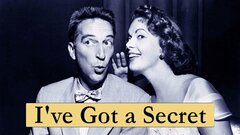
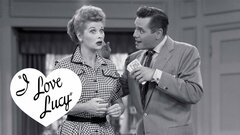
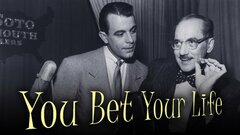

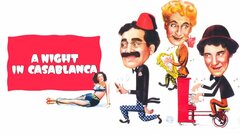



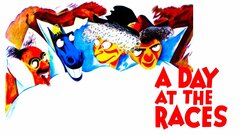
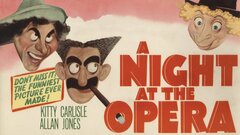
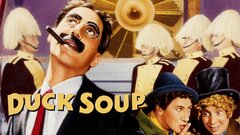
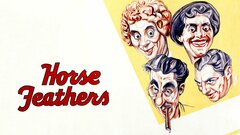
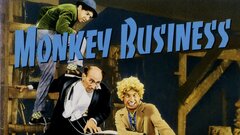
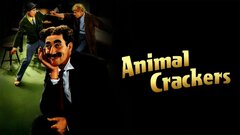




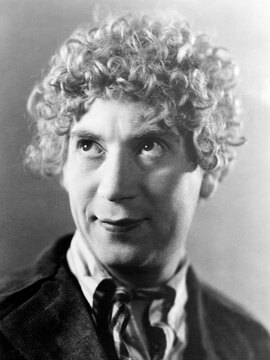













































































![A NIGHT IN CASABLANCA, Chico Marx, Harpo Marx, Groucho Marx [The Marx Brothers], 1946](https://media.baselineresearch.com/images/402024/402024_small.jpg)

![A NIGHT IN CASABLANCA, Chico Marx, Groucho Marx, Harpo Marx [The Marx Brothers], 1946](https://media.baselineresearch.com/images/402021/402021_small.jpg)


















































































































![A NIGHT AT THE OPERA, Harpo Marx, Allan Jones, Chico Marx, Groucho Marx [The Marx Brothers], 1935](https://media.baselineresearch.com/images/115133/115133_small.jpg)
![A NIGHT AT THE OPERA, Margaret Dumont, Kitty Carlisle, Allan Jones, Chico Marx, Groucho Marx, Robert Emmett O'Connor, Harpo Marx, Purnell Pratt [The Marx Brothers], 1935.](https://media.baselineresearch.com/images/115131/115131_small.jpg)
![A NIGHT AT THE OPERA, Chico Marx, Harpo Marx, Groucho Marx [The Marx Brothers], 1935](https://media.baselineresearch.com/images/115130/115130_small.jpg)
![A NIGHT AT THE OPERA, Groucho Marx, Chico Marx, Sig Rumann, Harpo Marx [The Marx Brothers], 1935](https://media.baselineresearch.com/images/115129/115129_small.jpg)

























